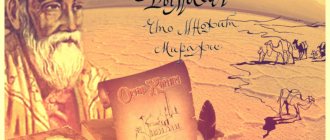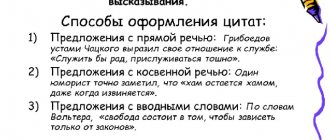Genre, direction, size
Vladimir Mayakovsky's repertoire is true futurism. All of his poems are recognizable at first glance, because he used the tonic method of versification and touched on conceptually new topics. The very idea of revolution, the rough and harsh aesthetics of honest swear words, the abundance of occasionalisms, perpetual motion and extraordinary dimensions, original and, one might say, unprecedented phrases - everything points us precisely to this movement within the framework of modernism.
The genre of the poem is lyric-epic, although such an accurate historical component of the work allows us to call it a “chronicle poem.”
Problems
- Civil War . As a result of the massacre for power, hundreds of people died, and ordinary, ordinary workers, because the elite never faced bullets themselves. But because of the greed and greed of the old world, the new one almost choked in blood. Despite all the humanity and aristocratic speech of the white officers, these warriors robbed, raped and killed their own fellow citizens without regret (although the Reds did the same).
- Hungry and poor years . During the war, large cities were cut off from food, people died from cold and hunger without food or food. The hero especially touchingly describes the thinness and ill health of his beloved, whom he presents with two carrots and a log instead of sweets and flowers. But, despite this, the townspeople were ready to defend their ideals to the end.
- Corruption and anti-national politics . The author ridiculed many political movements of that time, emphasizing a common feature - they all served the bourgeoisie, which only wanted to preserve its capital, but was never interested in the condition of the people.
Tell us what was missing, and we’ll write everything that’s missing.
History of creation
Poem "Good!" written in 1927 for the tenth anniversary of the Great October Revolution, compatriots deservedly considered this poem to be significant for those times. We can immediately say that Mayakovsky expressed his feelings and experiences, as usual, more rudely than one would expect. But the work probably helped the author avoid repression, which did not spare writers and poets at that time.
But this was not written out of fear or greed, for the creator was an ideological Bolshevik who believed in the bright future of the new Russia. Vladimir Mayakovsky said that people should remember the lives of their ancestors, and in his work he reflected all the most important events of that time, showing them as objectively as possible.
Themes
- The main theme of the poem is revolution , a difficult but necessary and heroic event for the country. The work vividly conveys the mood of changes in each individual historical period. Each of the 19 chapters tells about individual events, showing and revealing the heroes of the revolution and their actions in a given situation. The coup became a turning point in the fate of Russia, it imposed new values and guidelines on the people, and its role in our history is difficult to overestimate.
- Construction of a new state . The author showed the difficulties and joyful moments of creation, because the old rotten world has been replaced by an updated and progressive age of technology, equality, justice and national brotherhood. The joy of joint work permeated the lines; the pride of a patriot who is proud of the transformations in his country is obvious.
- Patriotism . Mayakovsky loved his homeland very much and nursed it, destroyed, broken by battles, like a child. This land was hungry and at war with him, she went into battle with her devoted sons for a bright future, she also encouraged their work and gave them a harvest. Russia is a heroine who was on the side of the people.
If something is missing, write in the comments what to add)
Meaning
The idea with which the work is imbued from beginning to end is the necessity and justice of the revolution. In it, the author saw the people’s struggle for their rights and freedoms, which had been trampled upon by the elite for centuries.
But, in addition to bright hopes and praise, the tragedy of all of Russia is shown here. Every person who participated in this historical event suffered. The main idea of the work is to guide the reader through those years and show how much effort it took for people to survive, work, and love in such a difficult time. It was not the fault of a separate Duma faction; the coup and subsequent massacre were caused by random, isolated events, which, clinging to each other, turned into a terrible tangle. All the hardships that fell on people’s heads simply accumulated for a long time and resulted in this chaotic, bloody and cruel era.










